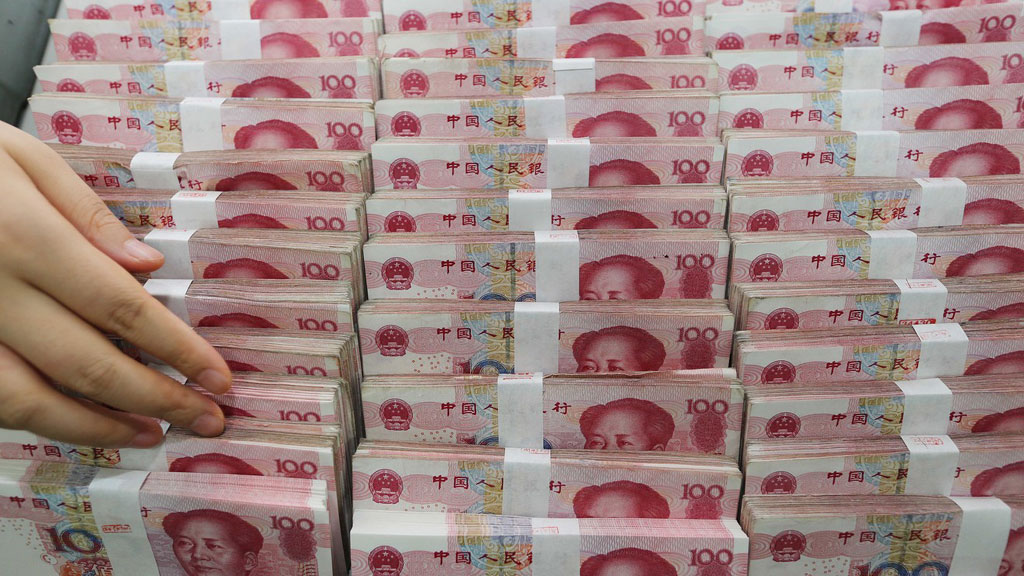China yuan's slide past 7/dollar had policymakers' blessing

SINGAPORE: Chinese monetary authorities let the yuan slide past the key 7-per-dollar level so that markets could finally factor in concerns around the Sino-US trade war and weakening economic growth, three people with knowledge of the discussions said on Monday.
The yuan tumbled 1.4pc and past 7-per-dollar level for the first time in more than a decade on Monday, following two days of weaker than expected midpoint settings by the People's Bank of China.
Those fixings on Friday and Monday followed US President Donald Trump's announcement that he will impose 10pc tariffs on the remaining $300 billion of Chinese imports from Sept. 1, abruptly breaking a brief month-long ceasefire in a long-running trade war.
"We have had serious internal discussions, including issues such as the timing of the announcement, how to guide the market, and made some arrangements on such issues," a policy source told Reuters.
"The regulators had a half-resisting, half-allowing idea for the yuan to fall past 7 to the dollar."
The PBOC had no immediate comment on the report, but earlier in the day said it was confident and capable of keeping the yuan basically stable at reasonable and balanced levels.
China would not use its currency as a tool to cope with external disturbances such as trade disputes, nor would it engage in competitive devaluation, central bank governor Yi Gang said in a statement on the PBOC's website late on Monday.
A second policy source said the yuan's drop would allow the market to let off steam after speculating for a year about when it would hit the 7 mark.
"The depreciation is good to prevent mounting financial and political risks, including trade tensions with the U.S," he said.
A government adviser said that while the PBOC had been preparing for the depreciation, the trigger was Trump's unexpected announcement of further tariffs.
"This is not the PBOC's tactics but is due to the US (tariff) move. The responsibility should on the US side. The market was steady prior to the US tariff move," he said.
Other sources with knowledge of policy thinking said the yuan's depreciation could now be a signal to Washington that China had no choice but to relent to the pressure on markets and trade from the rising tariffs.
"If your trade surplus falls, other conditions unchanged, your currency will naturally weaken, but it's not an intentional depreciation to support weaker exports," Yu Yongding, a former PBOC policy adviser, told Reuters.
"There won't be too big depreciation pressure on the yuan. We still have capital controls and we don't need to worry too much. No intervention means no impact on FX reserves."



















Comments
Comments are closed.